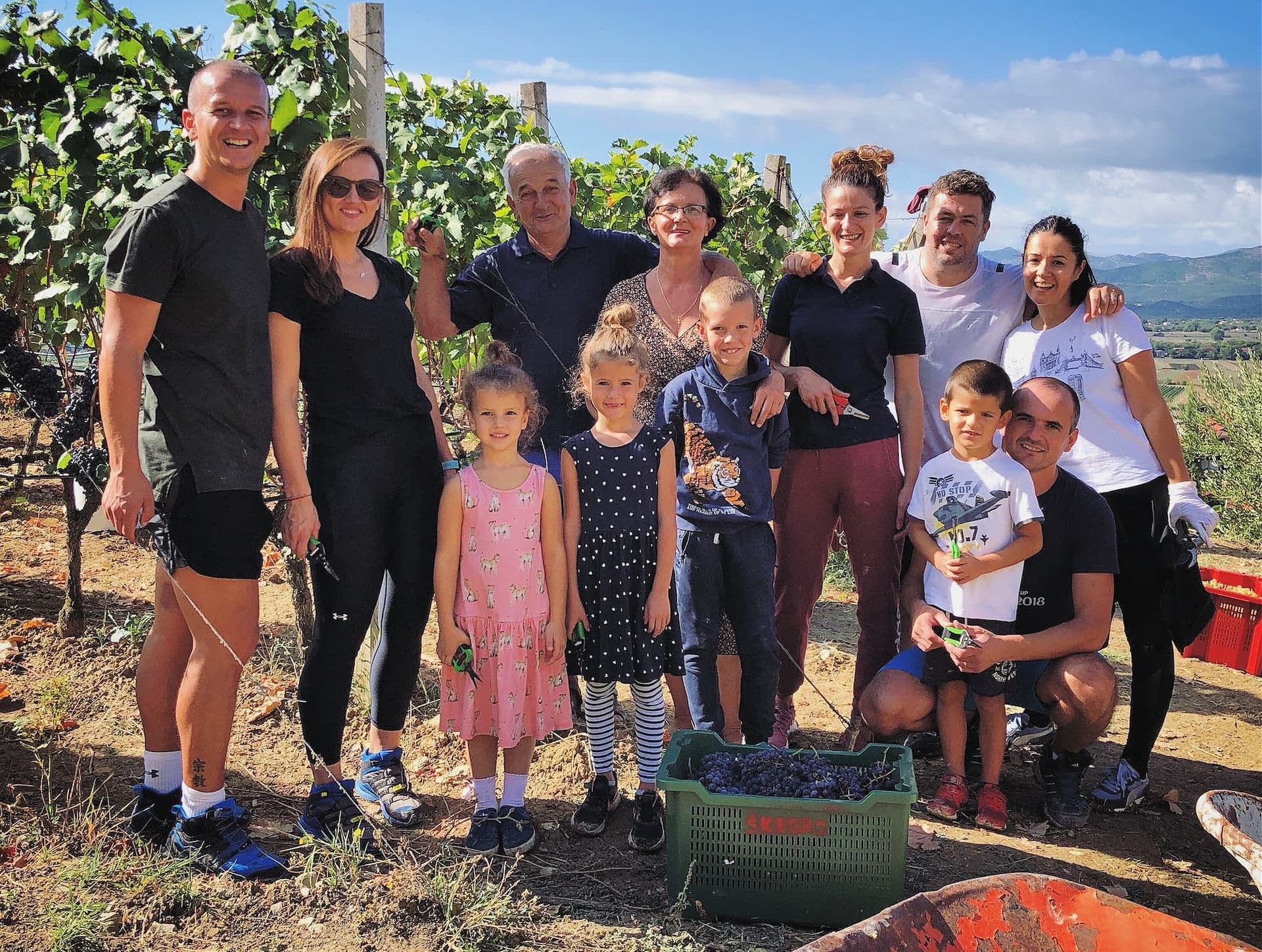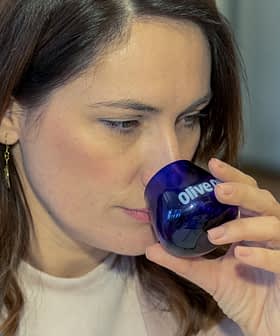They say that the award is easier to win than to defend, and the Škegro Family Winery from Bosnia and Herzegovina succeeded in both. For five years in a row, their oil has won gold at the NYIOOC World Olive Oil Competition, the industry’s most coveted olive oil quality award.
It is satisfaction for the work invested and sacrifice. Recognition to me, our family and even the region of Herzegovina.
“The New York Award means a lot. It is satisfaction for the work invested and sacrifice. Recognition to me, our family and even the region of Herzegovina of which we are a part. The recognition confirms that we are on the right track,” Mirko Škegro (72) told Olive Oil Times.
Mirko, with his wife Mirjana, daughter Andrea, sons Bariša and Ante owns a family winery that has been producing highly valued wines from autochthonous grape varieties Žilavka, Blatina, Trnjak and Orange for 26 years.
But lately, it has become increasingly famous for extra virgin olive oils. “Oil and wine are eternal brands, and vines and olives in symbiosis give top quality,” said Mirko.

Olives have always been planted along the edges of vineyards in Herzegovina, and the Škegro family continues this tradition. Along the edges and between the vineyard plantations, they planted a total of 600 olive trees, 100 of which are in full fruition.
Most of them are autochthonous varieties Oblica, Levantinka, Lastovka, Istarska Bjelica and Italian Leccino, Pendolino, Coratina and Cipressino. Ideal exposure, permeable soil rich in minerals as well as climate play a role in everything.
The Škegro family plantations are located in western Herzegovina in the hills above the town of Ljubuški in Radišići at 132 to 312 meters above sea level and only 28.6 miles from the Adriatic coast. There is biodiversity, a multitude of endemic species.
The Mediterranean and continental climate mixes, the days are hot and the nights are cold, which suits both vines and olives. “Fruits accumulate sugars and dry matter,” said Škegro. He especially emphasized the autochthonous variety Oblica, which accounts for 40 percent of the award-winning oil Krš.
“[The Oblica] is resistant to diseases, and the fruits give the oil an extra quality. They are also ideal for canning and consumption,” Škegro reminds critics who have recently advocated abandoning Oblica and re-grafting it to other, mostly introduced varieties.
The secret of top-quality olive oil is in harvesting, processing and storage. “We pick olives when the deadlines are optimal, by hand. All family members take part in the harvest. Then cold pressing follows within a few hours. The oil immediately goes into stainless steel containers. After a month, they pour it into dark bottles and store it at an ideal temperature of 16 to 18°C.

The Škegro family
The result of all the above is premium oil with a mild taste and a balanced bitterness, full of aromas and fruitiness. Thanks to the quality and awards for Škegro’s oils and wines, it became widely known.
“We had the honor and pleasure to host the Ambassador of the United States to Bosnia and Herzegovina, Eric Nelson, and his associates,” said Škegro. They presented their products, wines and oils, which are the result of harmonious family work and discussed the development of rural tourism and the branding of Herzegovina as a destination for top wines and oils.
Marko Ivanković, the director of the Federal Agromediterranean Institute Mostar, also attended the meeting. “We are taking big steps forward,” he said.
Although organized olive cultivation began in the last 10 years or so, from 6,000 trees they have reached the current 87,000, which cover 350 hectares — a growth that has not been recorded so far in the European Mediterranean.
In a recent interview with the Olive Oil Times, Ivankovic said that in the next medium term, the goal is to reach 1,000 ha under olive trees.
“With the increase in the number of commercial producers and the increase in processing capacity, the aim is to protect the origin and geographical origin of Herzegovinian olive oil and its branding,” concluded Ivanković.
As for the Škegro family, their wines and oils are, as they say, “a story that lasts, continues and leaves a mark.”









